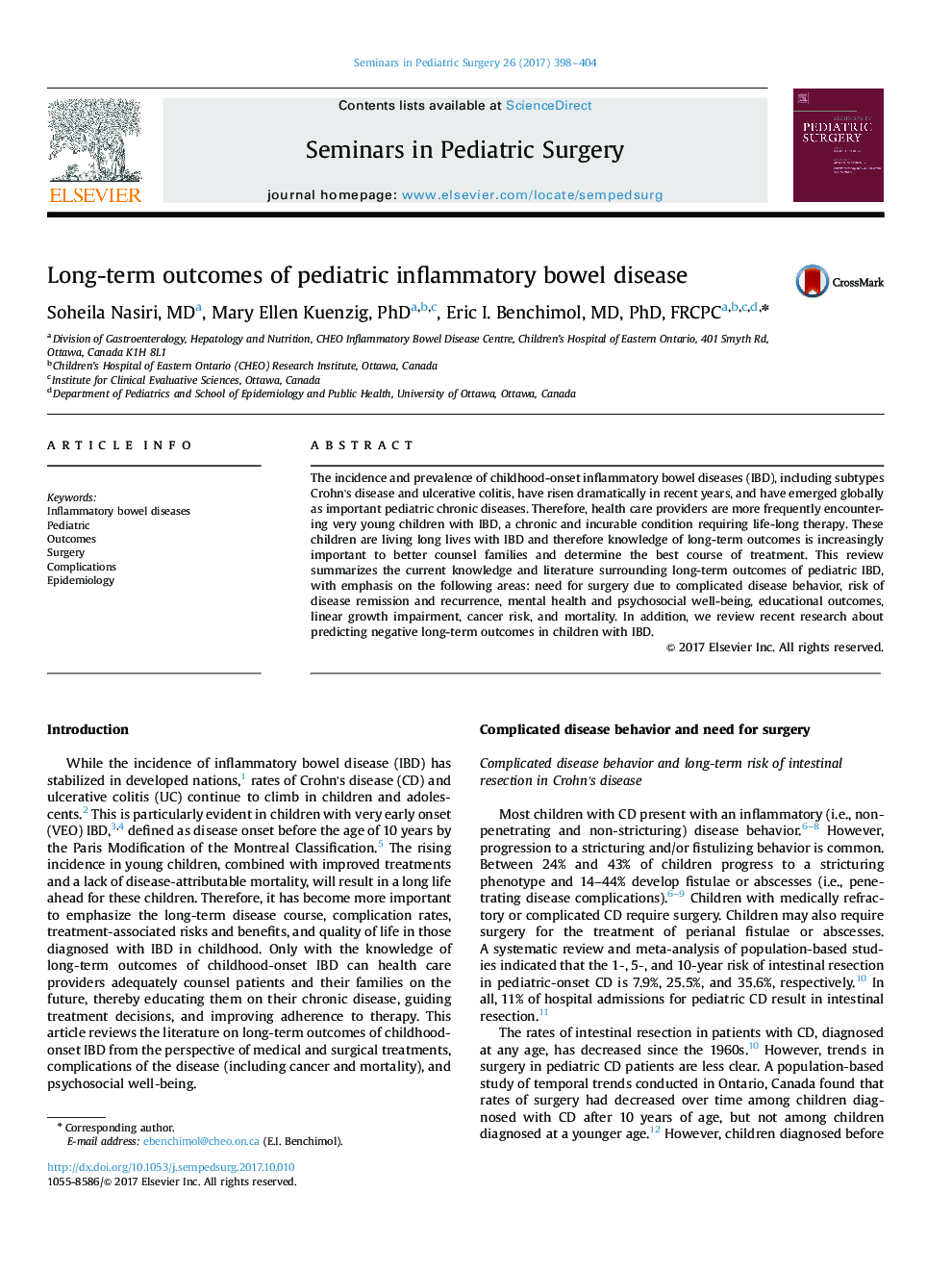| Article ID | Journal | Published Year | Pages | File Type |
|---|---|---|---|---|
| 8813833 | Seminars in Pediatric Surgery | 2017 | 7 Pages |
Abstract
The incidence and prevalence of childhood-onset inflammatory bowel diseases (IBD), including subtypes Crohn's disease and ulcerative colitis, have risen dramatically in recent years, and have emerged globally as important pediatric chronic diseases. Therefore, health care providers are more frequently encountering very young children with IBD, a chronic and incurable condition requiring life-long therapy. These children are living long lives with IBD and therefore knowledge of long-term outcomes is increasingly important to better counsel families and determine the best course of treatment. This review summarizes the current knowledge and literature surrounding long-term outcomes of pediatric IBD, with emphasis on the following areas: need for surgery due to complicated disease behavior, risk of disease remission and recurrence, mental health and psychosocial well-being, educational outcomes, linear growth impairment, cancer risk, and mortality. In addition, we review recent research about predicting negative long-term outcomes in children with IBD.
Related Topics
Health Sciences
Medicine and Dentistry
Perinatology, Pediatrics and Child Health
Authors
Soheila MD, Mary Ellen PhD, Eric I. MD, PhD, FRCPC,
